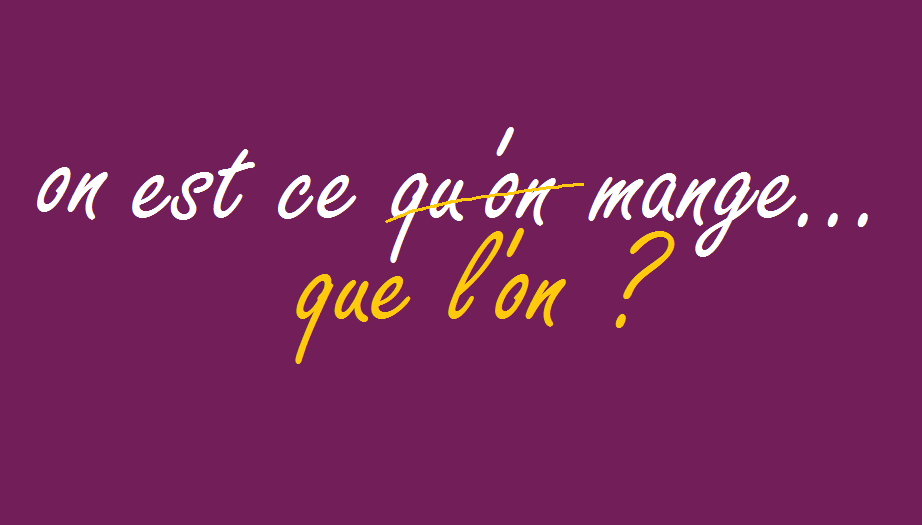L’on vs. On – What’s the Difference? Posted by Josh Dougherty on Oct 20, 2016 in Grammar

Bon or bien? An or année? C’est or il est? Tu or vous? As a student of French, you often encounter tricky pairs that don’t have an exact equivalent in your language. They require additional studying with plenty of examples for them to finally click, but eventually they become second nature. We’ve discussed many of these confusing pairs on the blog, and today we’re going to look at a pair that made me question a few things when I first started learning French.
Take a look at this quote by novelist and critic Paul Bourget:
Il faut vivre comme l’on pense, autrement l’on finit par penser comme l’on vit !
(One must live the way one thinks or end up thinking the way one has lived!)
It’s a pretty basic sentence: every verb is in the present tense (avoiding that subjunctive… ) and there’s simple vocabulary. Does anything else stick out to you, though?
You may have learned that on is a third person singular indefinite pronoun, so it’s conjugated like il and elle. In both spoken and written French, it can be the equivalent of one. Par exemple (for example): On peut toujours trouver moins cher en ligne (One can always find it cheaper online). There are a few more ways to use on in French, and we’ll discuss those in another post.
In the quote by Bourget, did you notice l’ in front of on? Any clue why it’s there? What’s the difference between on and l’on?
In old French, on was not a pronoun, but a noun. It wasn’t a replacement for another word – it was a word in its own right and acted like the word homme (man). À cette époque (at this time), French used subject cases: on was the subject case for homme, and l’on was the plural form, les hommes. Over time, French lost its subjective case, and on became the standard. L’on stuck around, and you’ll find it in the environments listed below, but remember that it is never required.
Use l’on…
- After the mot que. Why? not using l’on will result in what sounds like the word con (stupid, idiot, and other more vulgar words along the same line…).
Il faut qu’on parte… (We need to talk). You’ll hear this construction a lot, but not in formal settings. You’d be more likely to hear Il faut que l’on parte…
This also holds true for words that end in -que: puisque (since), lorsque (when), and quoique (although).
- To avoid hiatus (when 2 vowel sounds follow each other) and short words ending in a vowel sound such as et (and), où (where), ou (or), quoi (what), qui (who, that), si (if)
Pourriez-vous me dire si l’on peut payer par carte bancaire ? (Can you tell me if we can pay with a credit card?)
Use on…
- If the word following on begins with the letter L. This is to avoid alliteration (repetition of the same consonant sound). There isn’t anything intrinsically wrong with alliteration, but euphony (the quality of sounding pleasing to the ear) is important in French. There’s a reason it’s a beautiful language!
Et si on lisait tous les jours ? What if we read every day?
- After the relative pronoun dont. Going back to euphony, dont on sounds more pleasing to the ear than dont l’on.
C’est le livre dont on parle ! It’s the book everyone’s talking about!

Build vocabulary, practice pronunciation, and more with Transparent Language Online. Available anytime, anywhere, on any device.




Comments:
Jim:
Yes, French is beautiful, but it’s also maddening and this is the kind of thing that makes it so. Knowing this now compels the speaker to stop and think BEFORE he speaks: Does the word I’m going to say after “on” begin with an L? Am I going to use a qu- or hard c before it? This works against fluency. With enough practice, as you point out, it could become second nature and not require planning. But that amount and intensity of practice could only come with living in France and speaking French exclusively for at least a year. Maybe longer. I intend to continue using “on” and not worry about it. I’ll trust others to know I’m not calling them or anyone else “con.”